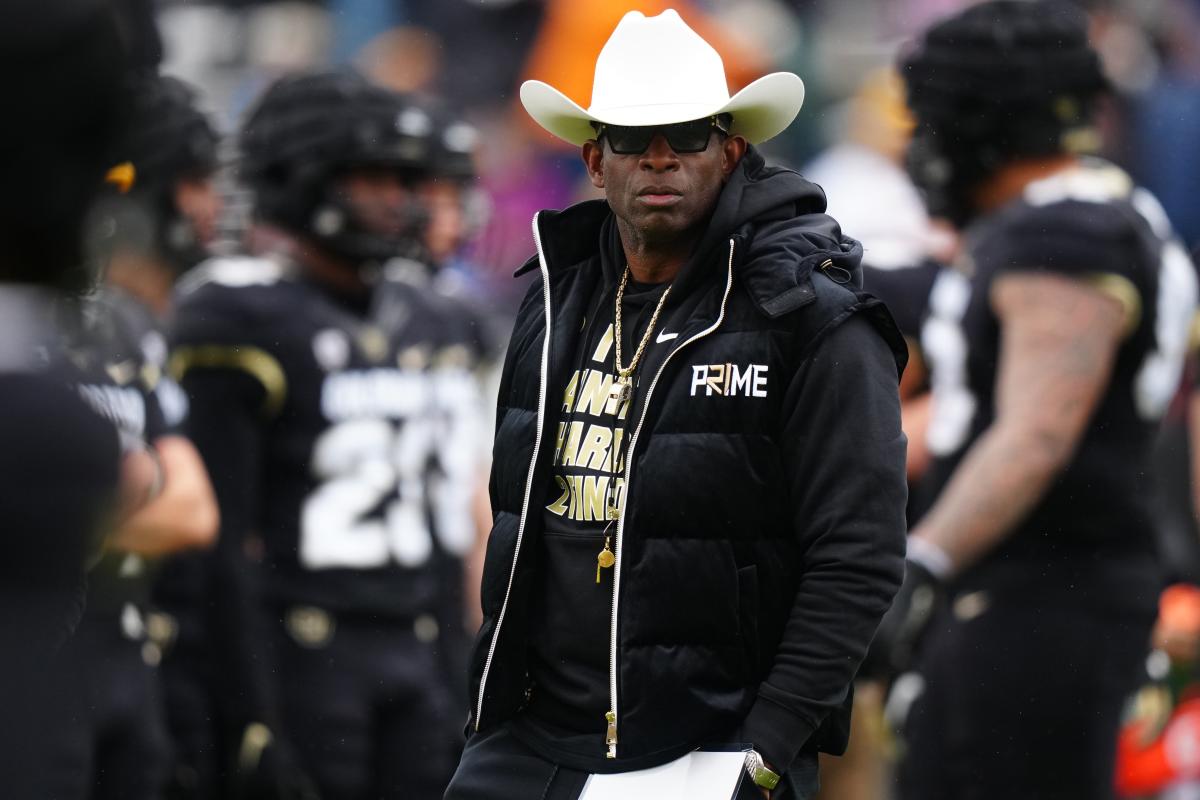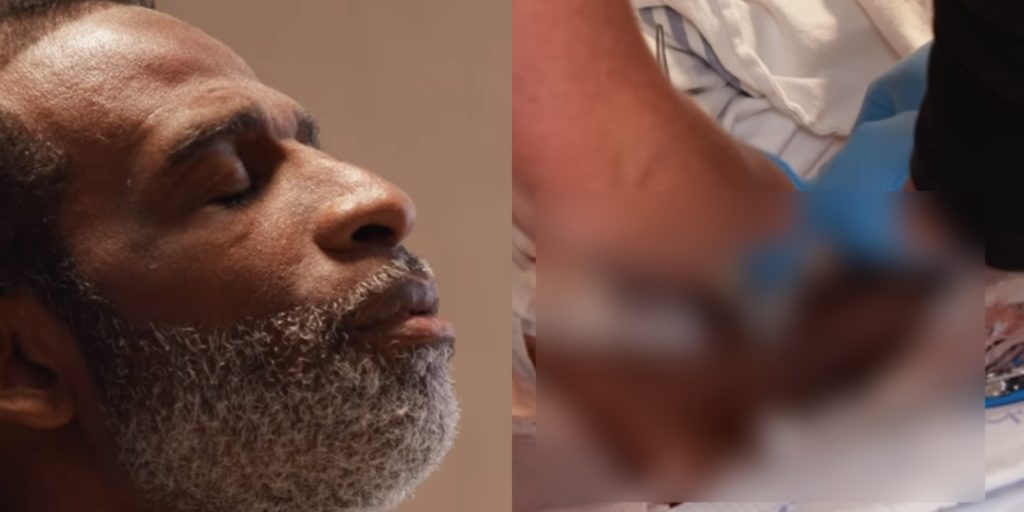Deion Sanders Toes Surgery Diabetes: The recent surgery on Coach Deion Sanders’ toes, reportedly linked to complications from diabetes, has sent shockwaves through the college football world and sparked intense public interest. The news raises crucial questions about the challenges faced by athletes with diabetes, the demands of high-level coaching, and the complexities of managing a chronic illness while maintaining a demanding career.
This situation underscores the intersection of athletic performance, health management, and public perception in the high-stakes world of collegiate sports.
Sanders’ surgery highlights the potential pitfalls of diabetes, particularly concerning foot health. The intricacies of the surgical procedure, recovery process, and potential long-term effects are all under scrutiny. Further complicating matters is the intense media coverage, raising ethical questions regarding the reporting of a public figure’s health struggles. The impact on Sanders’ coaching style and player management strategies is another key area of discussion, exploring how his personal experience may shape his leadership and team dynamics.
Deion Sanders’ Toe Surgery and its Implications
Deion Sanders’ recent toe surgery has sparked considerable interest, not only among football fans but also within the medical community. The procedure, necessitated by complications related to his diabetes, highlights the challenges faced by athletes with diabetes managing their condition while pursuing high-level athletic endeavors, and raises questions about the long-term impact on his coaching career at Jackson State University.
Deion Sanders’ Health and Football Career
Deion Sanders’ illustrious career as a player, known for his exceptional athleticism and contributions to both football and baseball, is well documented. His current role as a highly successful college football coach presents a different set of physical demands. While coaching doesn’t require the same level of physical exertion as playing professional football, it still involves long hours, significant travel, and the constant pressure of game days.
The surgery and his underlying diabetes condition could potentially impact his ability to meet these demands. The recovery period could significantly limit his mobility and energy levels, affecting his ability to effectively lead practices, strategize, and interact with players.
Managing diabetes in the context of high-level athletic competition presents unique difficulties. Athletes must meticulously monitor their blood sugar levels, adjust their diets based on training intensity, and manage medication schedules. The rigorous physical demands of training and competition can disrupt blood sugar control, leading to potential health risks. The intensity of coaching, although less physically demanding than playing, still requires significant energy and stamina, presenting similar challenges.
The demands of coaching college football, while less physically strenuous than playing professional football, still involve considerable physical activity, such as walking the sidelines, interacting with players, and traveling to games. The recovery from foot surgery, especially in a diabetic patient, requires significant time and physical therapy. This recovery time could significantly impact Coach Sanders’ ability to perform his coaching duties effectively during a crucial period of the season.
Many successful athletes have managed diabetes effectively while competing at a high level. Examples include former NBA player John Stockton, who played for many years while managing his type 1 diabetes, and former NFL player Jay Cutler, who managed type 1 diabetes throughout his career.
The Nature of Deion Sanders’ Toe Surgery, Deion Sanders Toes Surgery Diabetes
While the specifics of Coach Sanders’ surgery haven’t been publicly released, foot problems related to diabetes often require surgical intervention. Common procedures include amputations (in severe cases), bone fusions to correct deformities, and debridement to remove infected or necrotic tissue. Patients with diabetes are at higher risk for complications due to impaired wound healing and increased susceptibility to infection.
The recovery process following this type of surgery is typically lengthy and involves a rigorous program of physical therapy to restore mobility and function.
Potential complications following foot surgery in diabetic patients include infection, delayed wound healing, nerve damage, and even amputation in severe cases. The recovery timeline can vary significantly depending on the severity of the initial condition and the type of surgery performed, ranging from several weeks to several months. Physical therapy plays a crucial role in regaining strength, flexibility, and mobility in the affected foot.
News broke this week regarding Deion Sanders’ toe surgery, raising concerns about his diabetes management. While the football legend recovers, consider optimizing your own resources for future home improvement projects by checking out this helpful guide: home depot account 101 a step by step tutorial to maximize benefits. The long-term health implications of Sanders’ condition remain a focus for fans and medical professionals alike.
| Stage | Description | Timeline | Challenges |
|---|---|---|---|
| Immediate Post-Op | Pain management, wound care, limited mobility. | 1-2 weeks | Pain, swelling, infection risk. |
| Early Rehabilitation | Initiation of physical therapy, gradual weight-bearing. | 2-6 weeks | Pain management, regaining range of motion, preventing stiffness. |
| Advanced Rehabilitation | Increased physical activity, strengthening exercises, improving balance. | 6-12 weeks | Managing fatigue, preventing re-injury, achieving functional mobility. |
| Return to Full Activity | Gradual return to normal activities, ongoing monitoring. | 3-6 months or longer | Maintaining healthy lifestyle, preventing recurrence of foot problems. |
Diabetes and its Relationship to Foot Problems

Source: yimg.com
Diabetes significantly increases the risk of developing foot problems due to its impact on blood vessels and nerves. High blood sugar levels damage blood vessels, leading to reduced blood flow to the feet (peripheral artery disease), which impairs wound healing and increases the risk of infection. Simultaneously, nerve damage (peripheral neuropathy) causes loss of sensation in the feet, making individuals less aware of injuries or infections.
This combination of reduced blood flow and impaired sensation creates a perfect storm for serious foot complications.
Risk factors for diabetic foot problems include poor blood sugar control, high blood pressure, smoking, and a family history of foot problems. Early detection and treatment are critical to preventing serious complications. Regular foot exams by a healthcare professional, proper foot care practices, and maintaining good blood sugar control are essential.
- Regular foot inspections for cuts, blisters, or infections.
- Daily washing and moisturizing of the feet.
- Wearing well-fitting shoes and socks.
- Avoiding barefoot walking.
- Prompt treatment of any foot injuries or infections.
- Maintaining good blood sugar control.
Early detection and treatment of diabetic foot problems are crucial to prevent more serious complications, such as ulcers, infections, and even amputation. Regular checkups, careful foot care, and diligent blood sugar management are vital preventative strategies.
Public Perception and Media Coverage
Media coverage of Deion Sanders’ health situation has been varied. Some outlets have focused on the potential impact on his coaching career, while others have emphasized the challenges of managing diabetes. The public’s perception of athletes with diabetes can be significantly shaped by the tone and focus of media reports. Responsible reporting should prioritize accuracy, sensitivity, and avoid sensationalism.
Irresponsible reporting might focus on the negative aspects of the situation, potentially fueling misconceptions and stigmatization.
Responsible reporting involves factual accuracy, sensitivity towards the individual’s privacy, and avoidance of speculative or judgmental language. Irresponsible reporting may sensationalize the situation, focus on negative aspects, or make unsubstantiated claims. Ethical considerations demand respectful and accurate reporting, avoiding the exploitation of a public figure’s health challenges for sensationalistic purposes.
Impact on Coaching Style and Player Management

Source: totalprosports.com
Deion Sanders’ personal experience with diabetes and his recent surgery could significantly influence his coaching decisions and player management strategies. His increased understanding of the challenges faced by athletes with health conditions might foster greater empathy and support for his players. He might also adjust his training programs to incorporate strategies that promote player well-being and injury prevention.
His experience could lead him to prioritize player health and well-being more strongly, emphasizing injury prevention strategies and providing more support for athletes facing similar challenges. He may also implement more flexible training schedules and recovery periods to better accommodate individual player needs. For example, if a player reports foot pain, Coach Sanders might be more understanding and proactive in addressing the issue, potentially utilizing his own experiences to better understand and empathize with the player’s situation.
Summary: Deion Sanders Toes Surgery Diabetes
Deion Sanders’ surgery serves as a stark reminder of the challenges faced by athletes with diabetes, the importance of proactive health management, and the ethical considerations surrounding the media portrayal of health issues. While the specifics of Sanders’ situation remain partially private, the public discourse surrounding his recovery offers a valuable opportunity to raise awareness, promote responsible reporting, and shed light on the complexities of managing diabetes in high-pressure environments.
The long-term impact on his coaching career remains to be seen, but his experience undoubtedly adds a unique perspective to his role as a leader in college football.
